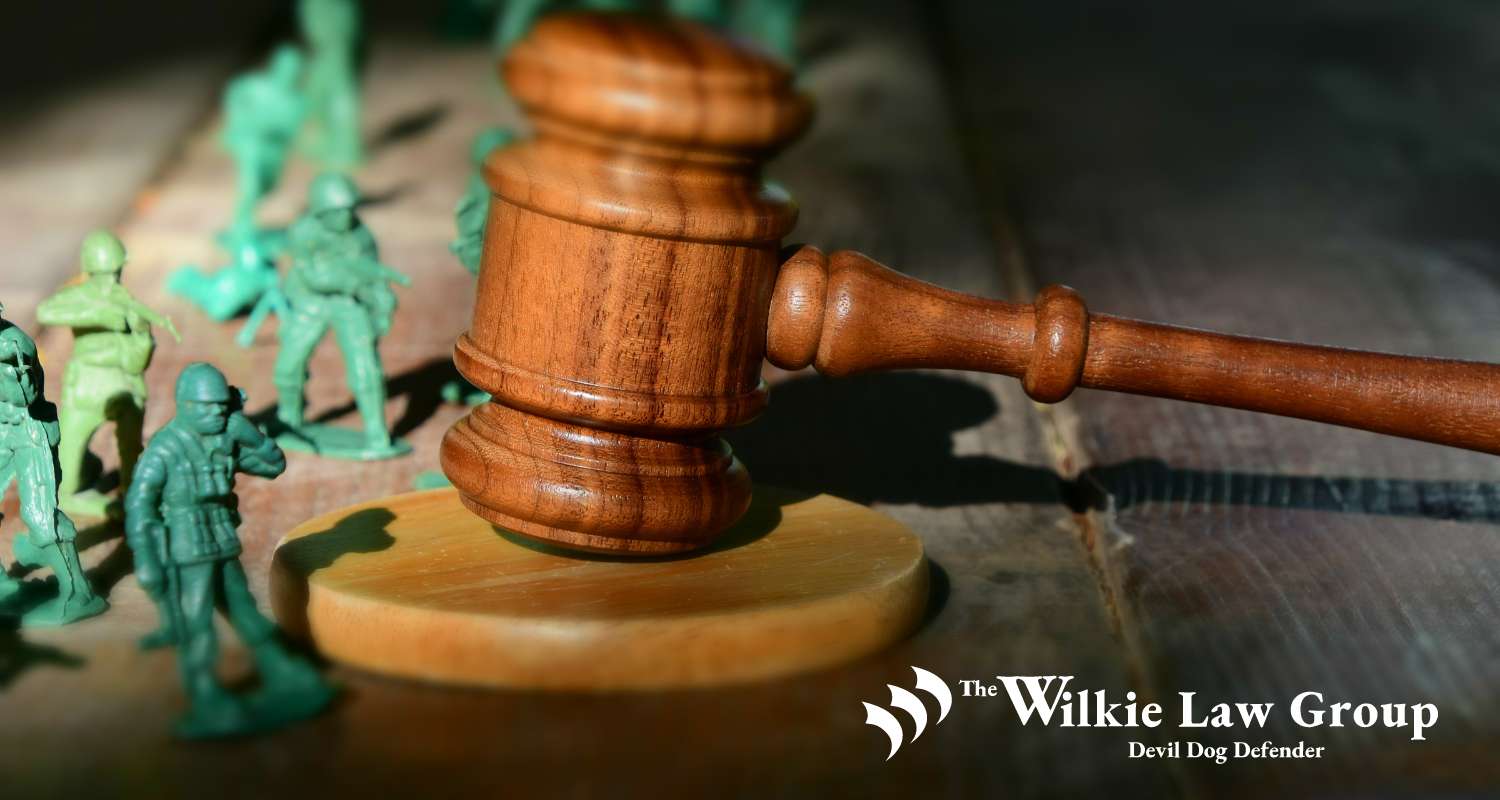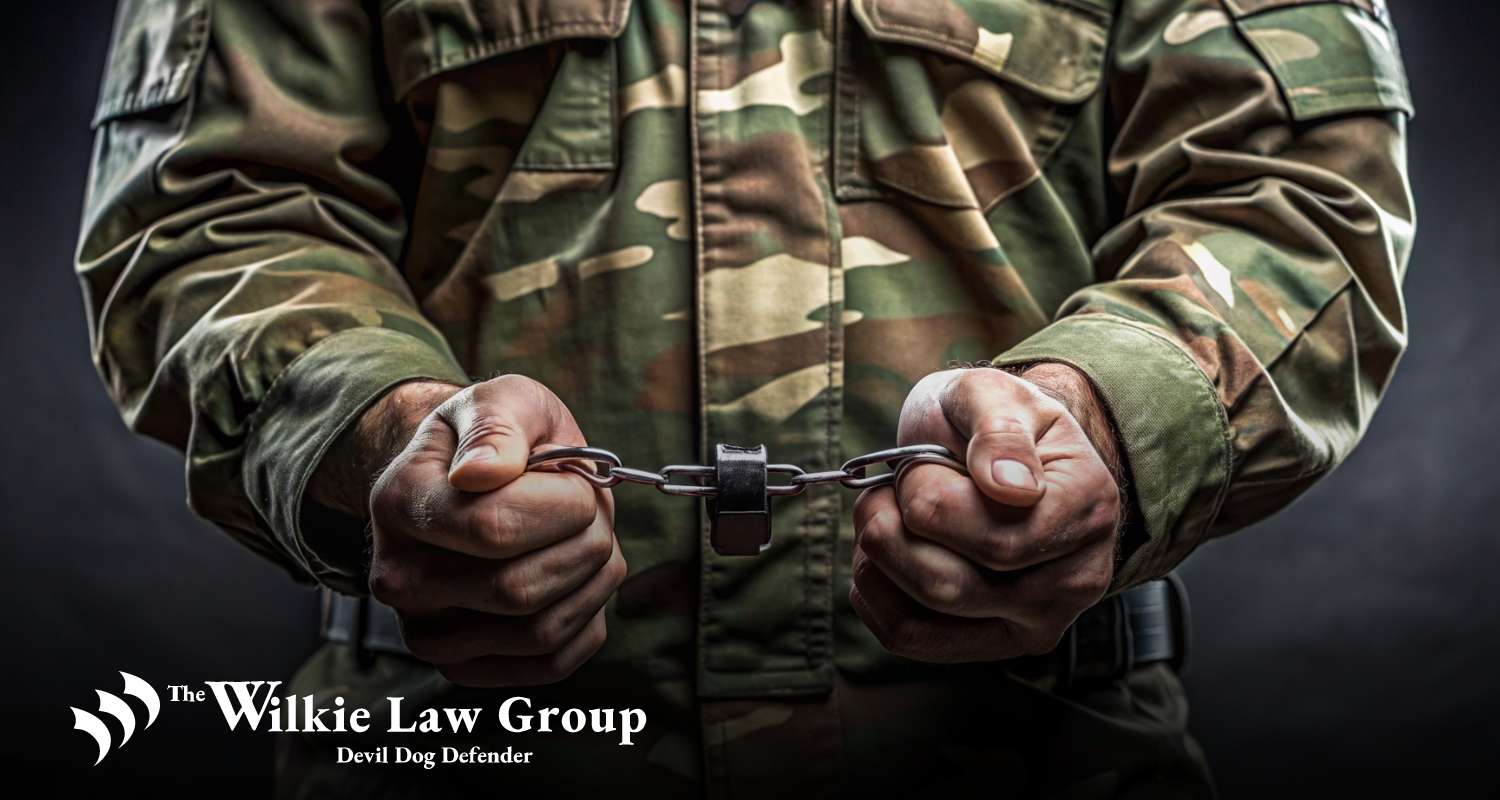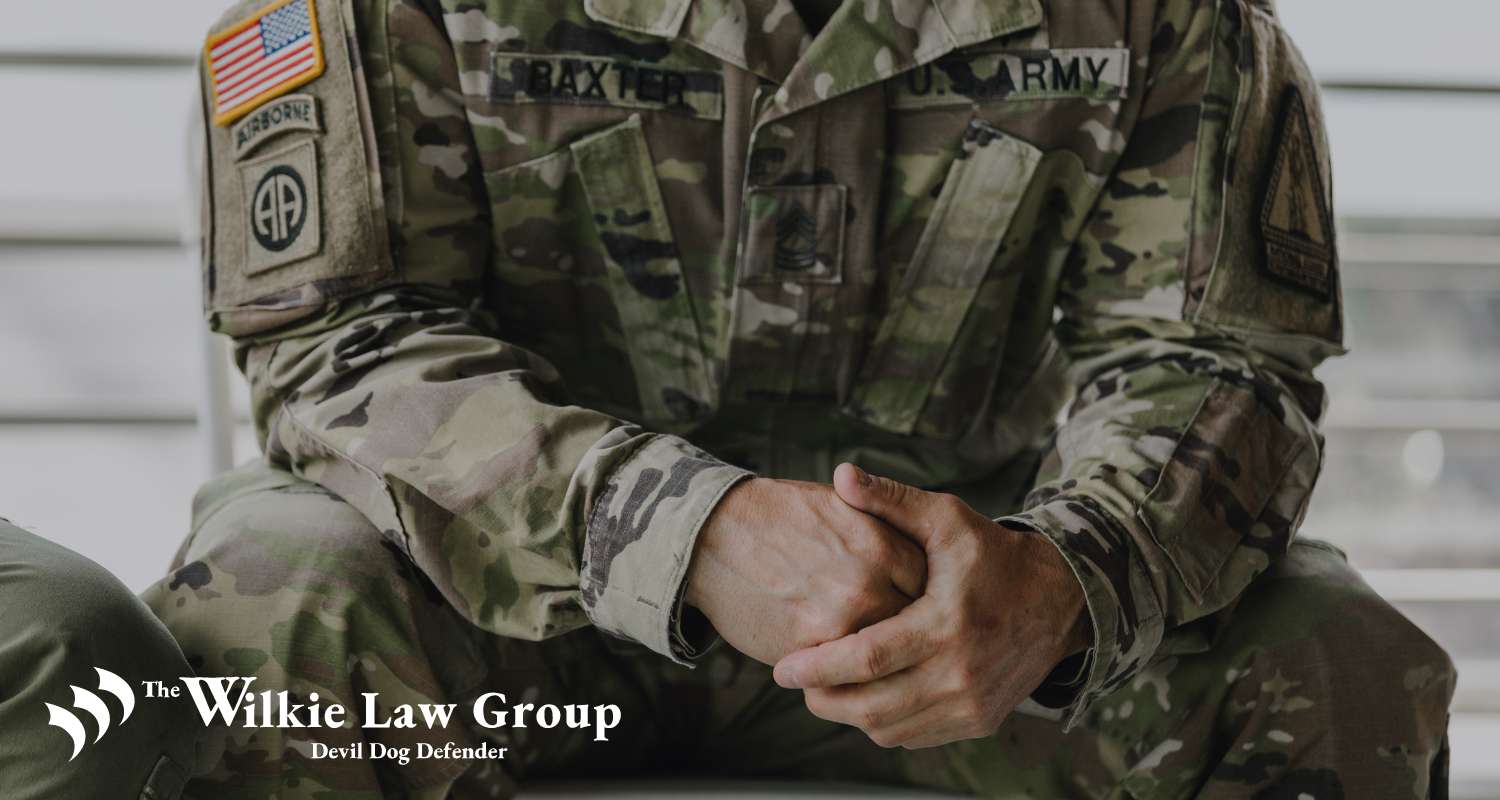Fort Bragg Court Martial Defense Lawyer
Aggressive Criminal Defense for Court Martial Hearings
Home » Military Defense Lawyer » Fort Bragg Court Martial Defense
Military Counsel
Helping Military Personnel Navigate Their Court Martial Charges at Fort Bragg
Fort Bragg, formerly Fort Liberty, spans over 250 square miles of land just west of Fayetteville, North Carolina, making it one of the largest military installations in the world. Fort Bragg is the headquarters for the U.S. Army Special Operations Command as well as home to the Army’s XVIII Airborne Corps, Army Reserve Command, and Army Forces Command, making it a central hub for numerous special operations forces. Fort Brag hosts well over 50,000 military personnel, and due to this significant population, it also tends to see a high number of criminal offenses among service members, many of which result in court-martial proceedings.
Facing a court-martial is one of the most daunting challenges any service member can encounter. The stakes are incredibly high, with your military career, freedom, and future on the line. Whether you’re facing accusations of general misconduct or much more serious criminal charges like rape or sexual assault, the outcome of your case can and likely will have a profound impact on various aspects of your life. In these critical moments, having effective legal representation from an experienced military defense attorney can make all the difference in the outcome of your case.

As a Jacksonville, North Carolina-based military defense law office, The Wilkie Law Group understands the unique pressures and challenges that come with military service and is fully committed to defending the rights of military personnel stationed at Fort Bragg. With a deep understanding of military law and a track record of success in court-martial cases, we stand ready to fight for your rights, protect your reputation, and secure the best possible outcome in your case.
To speak with a skilled Fort Bragg court martial attorney at our firm, call (910) 333-9626 or send a message online today.
Understanding Court-Martials
A court-martial is a type of military action used to try members of the armed forces for violations of the military code of justice (UCMJ). These proceedings are intended to ensure that service members are held accountable for their actions while maintaining the discipline and order necessary for military operations. Depending on the severity of the alleged offense, there are a few different types of court-martials, each with varying levels of formality and consequences. These include Summary, Special, and General Court Martial.
Summary Court Martial
Summary Court-Martial is the least formal of the three types and is typically reserved for offenses that require harsher penalties than nonjudicial punishment (NJP), administrative discharge, and other administrative actions but less harsh than what a Special or General court-martial may warrant. It involves a single officer who acts as judge, jury, and prosecutor. The maximum penalties in a summary court-martial are generally limited, often involving short periods of confinement, a reduction in rank, or forfeiture of pay. While it is a quicker process, the accused still has the right to refuse a summary court-martial and opt for a more formal proceeding.
Special Court Martial
Special Court-Martial is more formal and is akin to a misdemeanor trial in civilian courts. It involves a military judge and at least three members of the military jury (unless the accused opts for a judge-only trial). Punishments for a Special Court-Martial can include up to a year of confinement, reduction in rank, forfeiture of two-thirds pay per month for up to a year, and a punitive discharge.
What is a Short Martial?
The term “short martial” is an informal expression sometimes used to refer to a streamlined Special Court-Martial process. This type of proceeding is typically reserved for less serious charges, with the main difference being that the maximum penalty is limited to six months of confinement, and a bad conduct discharge cannot be imposed. Additionally, unlike a standard Special Court-Martial, there is no option for a jury trial, and the accused does not have the right to decline this type of forum.
General Court Martial
General Court-Martial is the most serious type of military proceeding, comparable to a felony trial in the civilian judicial system. As such, this is reserved for the most severe offenses, such as desertion (UCMJ Art. 85), sexual assault (UCMJ Art. 120), or murder (UCMJ Art. 118). A general court-martial requires a military judge and a panel of at least five members for the jury unless the accused opts for a judge-only trial. Potential penalties can include long-term confinement, dishonorable discharge, and sometimes even the death penalty, depending on the nature of the offense.

Common Reasons for Court-Martials
Service members may face a court-martial for a variety of reasons, ranging from minor infractions to serious criminal offenses. Some of the more common reasons our military defense lawyers see include:
- Desertion or Absence Without Leave (AWOL) – When a service member leaves their post or fails to return from leave without authorization, they may be charged with desertion or being AWOL. Desertion is considered a more severe offense, particularly if the service member intended to avoid hazardous duty or important responsibilities.
- Insubordination – Disobeying a lawful order from a superior officer, showing disrespect to a superior officer, or any other form of insubordination can lead to court-martial charges.
- Drug Offenses – There is a zero-tolerance policy for drug use in the military, considering it a threat to the safety, readiness, and discipline of the forces. As a result, service members may face court-martial for the use, possession, distribution, or trafficking of illegal drugs.
- Sexual Assault and Misconduct – Allegations of sexual assault in the military (or other forms of sexual misconduct) are treated with utmost seriousness. These sex crime offenses can lead to severe penalties, including long-term imprisonment and dishonorable discharge.
- Theft or Fraud – Engaging in theft, fraud, or misappropriation of government property or funds can result in court-martial charges. This includes offenses such as larceny, embezzlement, or submitting false claims for benefits.
- Assault or Violent Crimes – Acts of physical violence, including assault, battery, or more severe offenses like homicide, can lead to court-martial.
- Conduct Unbecoming an Officer – This charge applies to officers who engage in behavior that is dishonorable or discrediting to the service. Conduct unbecoming an officer can include a wide range of actions, from unethical behavior to serious criminal acts, and can result in severe penalties, including dismissal from the service.
- Adultery and Fraternization – Engaging in inappropriate relationships, such as fraternization between enlisted personnel and officers or committing adultery, can lead to charges, particularly if the conduct affects unit cohesion or violates military regulations.
- Drunk on Duty – Drunkenness and incapacitation while on duty or during operations is a serious offense that can endanger lives and disrupt military operations. Such conduct is subject to court-martial and can result in severe penalties.

The Fort Bragg Court Martial Process
Investigation and Charges
When a service member is suspected of violating the Uniform Code of Military Justice (UCMJ), authorities will initiate a thorough military investigation to gather evidence and determine the validity of the allegations. The process begins with an initial inquiry to assess the allegations’ credibility, followed by a more in-depth investigation if warranted. Investigators may conduct interviews, collect physical evidence, and review records or communications. If the investigation uncovers sufficient evidence of wrongdoing, the findings are forwarded to the command, which will decide whether to pursue formal charges.
Pretrial Procedures
An Article 32 hearing is a vital pretrial step in the military justice process, similar to a civilian grand jury. It is required when a service member faces a General Court-Martial and serves to determine if there’s enough evidence to proceed to trial. The hearing is adversarial, meaning both the prosecution and defense present evidence, cross-examine witnesses, and argue their case. The hearing officer then recommends whether the case should go to trial, making it a critical opportunity for the defense to challenge the charges early on.
Pretrial confinement may also occur if a service member is deemed a flight risk, a danger to others, or likely to commit further offenses. This confinement is subject to a prompt review to ensure it is justified, with the accused having the right to contest it.
In preparation for a court-martial, both sides can file pretrial motions to address legal issues such as evidence suppression or charge dismissal. These motions can significantly impact the trial by shaping what evidence is admissible and how the proceedings will unfold, potentially influencing the case’s outcome before the trial even begins.
Trial Process
The court-martial trial process begins with the selection of a court-martial panel (military jury) by the convening authority. The trial then proceeds with the prosecution presenting its case through evidence and witness testimony, followed by the opportunity for the accused’s military defense attorney to cross-examine and present its own case.
During proceedings, it is the ultimate goal of the defense to protect the accused’s rights and create reasonable doubt, while the prosecution seeks to prove guilt beyond a reasonable doubt. After both sides present their cases, the panel deliberates to reach a verdict, and if guilty, determine the appropriate sentence.
Post-Trial Process
If the accused is found guilty, the post-trial process begins with sentencing. During this time, the court-martial panel or military judge will determine the appropriate disciplinary action based on the severity of the offense, the circumstances of the case, and the service member’s military record. Sentences can range from fines and reductions in rank to imprisonment and dishonorable discharge, depending on the seriousness of the conviction.
Following sentencing, the accused has the right to appeal the court-martial’s decision. The appeals process typically starts with an automatic review by the convening authority, who can approve, disapprove, or modify the sentence. For more serious convictions, the case may be reviewed by the military appellate courts, where a military defense lawyer may argue for the conviction or sentence to be overturned or reduced due to legal errors during the trial.
In addition to appeals, the convicted service member can submit a clemency request to the convening authority or higher military officials. Clemency is a request for leniency, such as a reduction in sentence or mitigation of penalties, and can be based on various factors, including good conduct, evidence of rehabilitation, or extenuating circumstances. Clemency is discretionary and offers an additional avenue for relief after the trial and appellate processes.

Rights of the Accused in a Court Martial
Service members accused in a court-martial have key legal rights to ensure a fair trial. These rights include:
- The right to remain silent, meaning they cannot be forced to testify against themselves (see UCMJ Art. 31)
- The right to legal representation, either by a military defense counsel provided at no cost or a civilian military defense lawyer of their choice
- The right to a fair and impartial trial, with protections against biases, including unlawful command influence where higher-ups cannot improperly sway the trial’s outcome
- The right to humane treatment during confinement and proper legal reviews
How an Experienced Military Defense Lawyer Can Help
Military defense lawyers play a crucial role in guiding service members through the challenges of a court-martial. From the initial investigation to the final verdict, a criminal defense attorney provides essential legal support and knowledge, ensuring that the service member’s rights are protected at every stage.
By carefully examining the evidence, identifying any weaknesses in the prosecution’s case, and developing a strong defense strategy tailored to the specific circumstances of the case, an experienced court-martial lawyer can provide essential representation for service members during their court-martial proceeding, advocating on their behalf in front of the judge and jury.
Overall, military defense lawyers provide critical advice and guidance while navigating military courts, helping the accused understand their options, potential outcomes, and the impact on their military career. Whether negotiating plea agreements, challenging evidence, or pursuing post-trial relief through appeals and clemency requests, a skilled criminal defense attorney like Aden Wilkie of The Wilkie Law Group can be an invaluable ally in securing the best possible outcome in a court-martial case.
Private Attorney vs. Military Defense Counsel (JAG)
When facing a court-martial, service members have the option to be represented by a Military Defense Counsel (JAG) or hire a private military lawyer for their defense. Military Defense Counsel, provided at no cost, are trained in military law and are familiar with the military justice system. However, they often have heavy caseloads and limited resources, which can impact the amount of time and attention they can dedicate to each case.
For this reason and a number of others, hiring a private attorney vs a JAG attorney offers distinct advantages. A private attorney can provide personalized, focused attention to your case, with the ability to thoroughly investigate, develop a tailored defense strategy, and challenge the prosecution’s case more aggressively. A civilian court-martial lawyer will also often have broader experience, not only in military law but also in civilian law, which can bring a fresh perspective and additional resources to your defense. All in all, working with private legal counsel can be a crucial step in achieving the best possible outcome for your case.

Defense Strategies for Court-Martials
Your criminal defense lawyer may employ several strategies and defense options to mitigate the consequences of a court-martial conviction. One common approach is challenging the evidence, where the defense questions the reliability, legality, or sufficiency of the prosecution’s evidence, potentially leading to reduced charges or a lighter sentence. Another strategy involves presenting mitigating circumstances, such as the accused’s exemplary military service, mental health issues, or personal hardships, to argue for leniency during sentencing.
A skilled court-martial attorney might also pursue negotiated plea agreements, where they work with the prosecution to agree on lesser charges or a reduced sentence in exchange for a guilty plea. This might include requesting character witnesses to testify about the accused’s positive attributes, reinforcing the argument for a lesser sentence.
In the case of legal errors or procedural issues during the trial, an experienced attorney can help file appeals or request clemency, seeking to overturn or reduce the conviction or sentence. Each of these strategies are designed to minimize the impact of a conviction and protect the accused’s future.
Why Choose Aden Wilkie at The Wilkie Law Group?
There are a number of reasons why accused service members facing a court-martial at Fort Bragg or any other military installation in the United States should choose experienced military defense attorney Aden Wilkie of The Wilkie Law Group to defend them. For starters, with decades of military experience of his own, Aden understands the unique pressures and challenges that come with military service firsthand, and he is able to bring a wealth of knowledge in both military and civilian law to your defense.
Aden and his team work tirelessly to provide personalized attention and a tailored approach to every case, ensuring that no detail is overlooked and that your defense is as strong as possible. With a proven track record of success in defending service members across all branches, The Wilkie Law Group is dedicated to standing by you every step of the way, from the initial investigation to the final verdict and beyond. When your career, freedom, and future are on the line, trust The Wilkie Law Group to fight for you with the skill, determination, and dedication you deserve.

Trust Our Experienced Military Defense Lawyers To Assist With Your Fort Bragg Court Martial Trial
Never underestimate the severe consequences that come with a court-martial conviction and a permanent criminal record. The outcome of your case can significantly impact your military career, personal life, and entire future. This is why it is so important that you seek assistance from an experienced lawyer who can ensure your rights are protected and your defense is strong.
If you or someone you know is facing a court-martial at Fort Bragg or any other military base in North Carolina or across the country, don’t leave your fate to chance. Contact dedicated court martial attorney Aden Wilkie today for a consultation. With years of experience and a deep commitment to defending those who serve, Aden Wilkie and his team are ready to stand by your side and fight for the best possible outcome in your case.
Call (910) 333-9626 or complete our online contact form to speak with a member of our team regarding your legal matter today.
Call the Devil Dog Defender Today!
If you or a loved one is facing criminal court-martial charges, don’t wait – contact Aden Wilkie, the Devil Dog Defender, as soon as possible. Based in Jacksonville, NC, our law firm proudly serves armed forces at Fort Bragg, Camp Lejeune, and various other bases, camps, stations, and posts across the country. Give us a call right away at (855) 691-3396 or contact us online to schedule your consultation.
